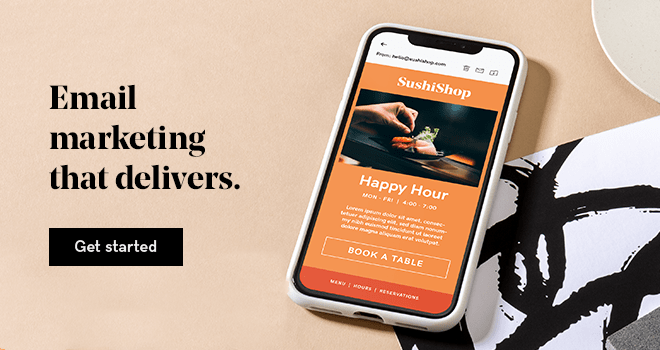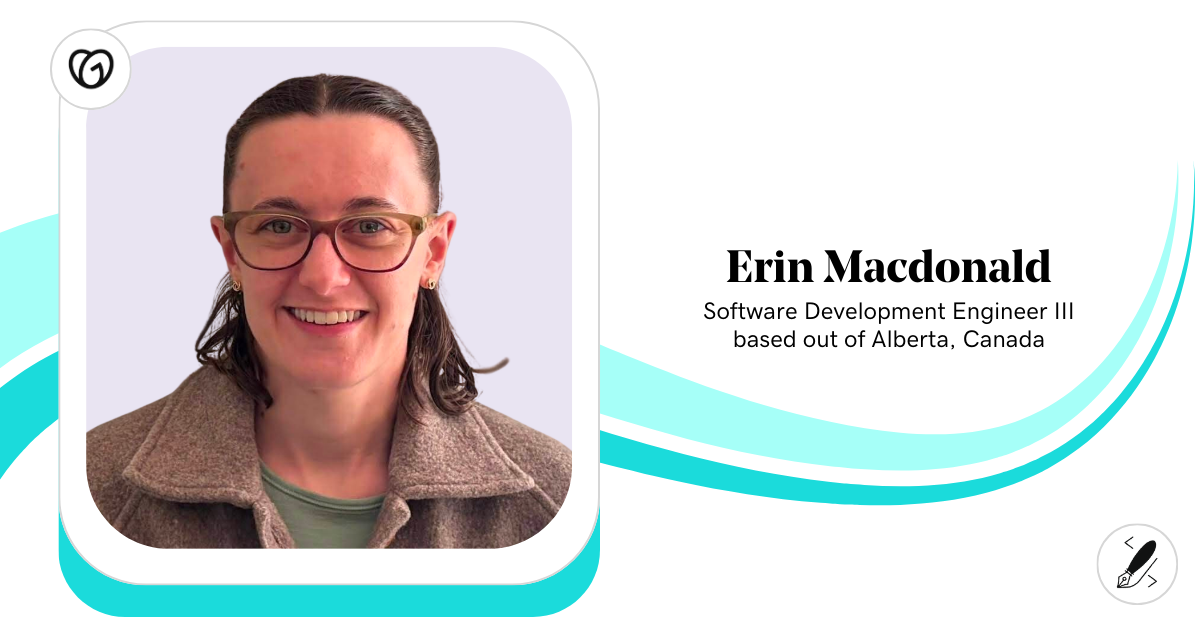Imagine what business would be like if you didn't have to pitch and sell or seek out and convince new clients to hire you. Imagine how different your business would be if your pipeline was consistently full and potential clients said “yes” with excitement after only a conversation or two.
Over the years, our project size has increased dramatically, but our approach to consistently making high-value sales with ease is still the same. A successful sales process requires a core understanding of what is most important to buyers and how they make buying decisions.
Learn your clients’ wants and needs
Before you can even have a sales conversation, you first have to understand what your clients need — and not just their surface wants, but their secret inner desires.
They might tell you they want to sell more books, fill a program, sell out an event, fill a practice, or help more people. Every clients wants to achieve those things.
Every client wants to make more money.
But you need to explore beneath the surface wants to figure out why they really are reaching out to inquire about your services — and it's often not what you think.
![Buying Decisions Client]](https://www.godaddy.com/resources/wp-content/uploads/2016/09/buying-decisions-client.jpg?size=3840x0)
Clients want to be heard and validated
Everyone has a varied set of life experiences that shape their views in different ways, especially when dealing with design, which is subjective and emotional. One person might think a design is amazing, while another thinks it is awful. Both perspectives are right, they just have different background stories.
Even if you disagree with a client, they want you to listen to them, hear what they have to say, and validate their input and perspective.
When they feel like you truly care and that you put their best interests and needs first, they will trust you to do exactly what they hired you to do.
Clients need to look bigger and better
Often, potential clients are considering an investment with you because they want to move upmarket or move the needle forward in their business. They want to look bigger, better and more expensive, because this will aid in their desire to charge higher rates, work with larger clients themselves, and make more money.
They hope their investment will help them look more professional and close sales faster, and for many, they really want to look better than that one key competitor (the one that gets under their skin).
Clients desire new opportunities
Whether it is getting an invitation to speak at an event or partner on a project, earning a new referral or contract, gaining brand exposure, writing a guest article, or being interviewed on a podcast, your clients want to attract new opportunities and they don't want to have to do a lot of work to get them. They hope that your work together will make them appear more desirable and result in new opportunities showing up that boost their brand visibility and bottom line.
Clients wish for a partner they like
Your best clients are those you love and who love you back. You have a great relationship. You know each other well and talk about more than just work but family and hobbies, too. You genuinely like each other and have a mutual trust that you both value.
Every client wants to find that relationship with the service provider they hire, and every service provider wants to find clients like that.
The key to making this a reality is investing time during the sales process to get to know your potential client.
Ask them about their weekend or their family or their hobbies. Get to know them as a person and try to find some common ground that you can connect on beyond your work together. Help them get to know, like, and trust you.
Learn how buying decisions are made
Once you fully understand what your potential clients need, you then must uncover exactly how they make buying decisions and what needs to happen for them to feel good about each decision. While every client will present a unique situation, budget, and set of project requirements, the way they decide whether or not to hire you is the same.
A client who is on the fence about hiring you, one who is wrestling with putting their signature on the final contract is also one who inside is dealing with a battle of heart and head.
Buying decisions are made with the heart and justified with the head.
- Their heart is saying yes while their head is saying no. This happens when it feels right, they like you, and they want to say yes, but there are some logical details that they haven't been dealt with and they need clarification and reassurance.
- Their head is saying yes, but their heart is saying no. This happens when the contract, the fee, and everything you discussed is right, but for one reason or another, emotionally they're just not feeling the partnership.
People buy with their heart
How many times have you purchased something you wanted even though it wasn't in the budget or maybe you shouldn't get it? I'll bet that each time it was because that thing triggered emotions in you that were so strong, you threw logic out the window and made the purchase. You saw it and felt happy, excited, relieved, or even nostalgic.
Like you, your potential clients make buying decisions based on emotions.
They want to do business with other people — people who they know, like, and trust. They make decisions about who they hire based on how they feel and how strong their connection with the service provider is.
Yes, it sounds like we could be talking about dating, because that's exactly what the sales process is like. You and your prospect are courting each other to see if you want to make a commitment.
Your courtship is done through email, phone calls, video chats, and in-person meetings. You're talking about their problems and challenges and how you can provide solutions. You're talking about their needs and wants and how you can help get them their desired results. The feelings and emotions associated with you or your company stem from this experience with you.
If they feel like you get them, understand their goals and needs, respect and value them, and support them through the process, and they like you and feel like it would be enjoyable to work together, they will make the decision to hire you.
People justify a purchase with their head
The heart guides the buying decisions in your interactions and conversations, and the head guides the buying decision during the discussion of critical details, contract review and negotiations, and payment.
Once a prospect feels in their heart that hiring you would be a good decision, it's up to you to make sure the head or brain is satisfied with the fine details and logic.
This is when you must follow up on promises of solutions and results with facts, figures, data and proof. You need:
- Common language that you both understand.
- A clear, easy to understand, professional contract.
- The details of exactly what is and is not included.
- A step-by-step process they can follow.
- Case studies, testimonials and social proof that back up your track record.
- Simple, concise, honest answers to their questions — all of their questions.
Their brain is looking to justify the emotional buying decision. Whether they realize it or not, there is a mental checklist of information they need so they can feel really good about investing with you. Whether it takes one phone call or three phones calls, a video chat, and two in-person meetings, you need to ensure they get every bit of information and reassurance they need to sign your client agreement.
Learn to leverage emotion and logic
When you're in the early sales conversations, avoid spending too much time talking about yourself and instead spend as much time as possible getting to know your potential client. It is critical that you ask a lot of questions, especially a few key open ended questions, including:
Can you tell me about your business?
The answer to this question, especially the length, gives you a really good idea of whether the prospective client is nutty or not, and whether they are passionate about their business or not.
Why do you need this project done? Why are you contacting me?
This tells you why the project important. You can reference this later in the sales process, when you are pairing emotional benefits with logical data and figures. If they object later, you can ask the question, “Wow. Earlier you told me this project was really important to you because of XYZ, has something changed?” Their answer will either re-engage them in the process or give you an idea of why they changed their mind.
How is not having this X, affecting your business right now?
You are being engaged because your prospect wants something they don't have or wants to achieve something they haven't yet achieved. This is a hard question for many prospects to answer because they have to admit to themselves and to you what isn't working. Their answer to this question will reveal the core problem they need solved.
If we get this done, what would change?
They just admitted that things aren't working and that they have a problem they need help solving. This question then lets them dream about how great things will be when they problem goes away. Their answer will reveal their core desire and wishes.
How much is this worth to you?
You now know their problem and what they hope to achieve by solving it. Now you need to tie both of these things to money. Get them thinking about their bottom line and how your work together would affect it. Their answer will help you justify your fee. (This doesn't mean you change your fee based on their answer, but that often hiring you becomes a no-brainer.)
A real-world example
Let's look at these questions in action. Below is a sample sales conversation using these questions:
Can you tell me about your business?
I have a consulting business and have been doing this for about 14 years. Until now I've gone into people's offices and worked face to face, but something changed in my personal life and now I need to leverage my time better, so I created a new virtual program that I want to launch at a higher price point, but I haven't done so yet.
Why did you reach out about your website? Why are you contacting me?
My website is old and outdated. I've changed a lot of things in my business in the last year and it doesn't reflect the level of clients I want to work with or where I want to take my business. It's sad to say, but I am embarrassed of my website. I try not to tell anyone about it, which I know is terrible. But it's not easy to use, so I haven't published a blog post in months. I need to create a sales page for my new program and have a way to sell it and deliver it.
Don't worry, almost everyone we speak to has website shame! How is not having a website you can use affecting your business right now?
Well, I'm not really doing any marketing because I don't want people to see my website. So business has been slow. It hasn't been a terrible thing because I had time to create my new program. But cash flow has been a bit of an issue. I know this program will change things and I'm ready to start selling it, but I don't have a way to do so online right now.
Your project is right up our alley and we can definitely work with you to create a website you not only love and are proud to show off, but one that is easy to use. When we get this done, what would change for you?
Oh wow. So much. With a new professional website that represents where I am at now, I would feel more confident investing time and money in marketing and blogging, which would get me more paying clients. I'd also probably need new business cards for networking — can you do that, too?
Oh and I'd finally be able to sell my new program, which would really help cash flow. I'd finally be able to start working with virtual clients, too. I spend so much time in the car driving to my clients' offices all over the place right now and it's tough because I also care for my elderly mother. I've had a lot of stress and guilt about not being able to be with her as much as I should and take her to all of her appointments, but I have to see clients.
Struggling with family obligations and guilt from your job is so difficult. I'm so sorry you have to deal with that. If we get this done for you, how many sales do you think you could make in the next month?
I don't know. I have never really thought about it. If I had to estimate, I'd say at least two new in-person clients and five new virtual clients. When I was sending my email newsletter and marketing regularly, I was closing four to six new clients a month.
Got it. How much is each of those sales worth to you?
Well, my average in-person contracts are $3,500 each and my new program will sell at $1,500 each. But honestly, I haven't landed a new client in the last couple of months. That's why I called you.
Wow. That adds up to $14,500. So by not having an easy-to-use site that you're proud of, you're potentially missing out on $14,500 a month or $174,000 a year in sales. Is that right?
On my gosh. I have never thought about it that way before. I mean, I've never done that math. I knew things were tight. That money would go far in making my life easier and allowing me to care for my mom. But wow, this is serious. This is huge! I know this new program will be a success and I don't want to sit on it any longer. I can't afford to sit on this any longer. I really need to get this done! When can you start?
Anchor your pricing with head and heart
As you can see, by the time we got to the end of the questions in that example sales conversation, the potential client was emotionally sold — without any hard selling actually being done.
The prospect knows things aren't good right now and they know that with one decision, their problems can go away, guilt can be lifted, and both their business and personal life would immediately improve. They realized just how much money they were leaving on the table and made the decision to take action.
The conversation first tapped into their emotions and then brought in the logic to justify the decision through the discussion of money and actual numbers. Plus, after realizing that an investment in a new website could net them at least $14,500 in just one month, seeing my proposal for $16,000 just doesn't seem like that big of a deal.
By asking the right questions up front, you are able to have a real, honest conversation completely focused on your client. You're listening, you're validating, and you're showing them that you care and that you want to help — and throughout the conversation, you're letting them know that together you can get it done and reach their goals.
After that it's all about the contract, and you always need a contract, especially a contract that converts prospects into clients, but that's for another article!










